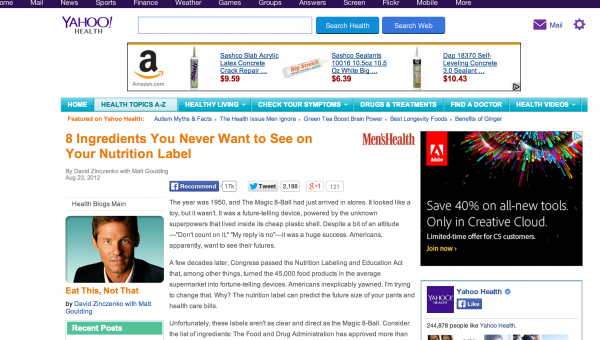Last week at the Mequoda Intensive, we had some pretty lively discussions about audience development both in-session and during breaks. Some of the most pressing questions involved Facebook, which we discovered had taken a sledgehammer to the visibility of publishers in the audience during the week of the conference for no reason at all. Now, like Google, Facebook is keeping us all on our toes with its algorithm and how they choose to tweak it.
As you might have noticed this week, we’ve been spreading out some of our attendees’ best take-aways from the event through video:
http://mequoda.wistia.com/medias/0sjjpgxqym?embedType=iframe&videoFoam=true&videoWidth=600
We’ve also been publishing some of their unique questions from the Intensive, which I’ve gathered below:
1. Whose responsibility is it to develop relationships with bloggers / guest bloggers?
During the Intensive we had a lively discussion about guest blogging, using the example of Men’s Health former Editor-in-Chief David Zinczenko as an example. During his time at Men’s Health, he guest blogged for sites like Yahoo! Health in order to build brand awareness and drive traffic back to Men’s Health. Although Matt Cutts has stirred the pot on the topic of guest blogging, publishers are somewhat of a major exclusion to his examples and actually create the rules in many ways.
Back to the question of whose responsibility it is to develop relationships with bloggers and guest bloggers, we’d say that this is the role of the person who’s in charge of your audience development efforts, like Zinczenko. At a smaller publishing company, it might be your online editor. With that said, if you’re the one guest blogging (as opposed to accepting the guest blogs), you’ll want to use a high-profile byline to play the marquee game. In some cases, this means the content is ghost blogged by an editor or online editor, although not always.
2. Is Instagram a good social network to try out?
In this discussion at the Intensive, as a group we decided that Instagram is a branding platform to be considered, but not a first place to spend your resources. The main reason is that you can’t actually drive website traffic from Instagram. You can post photos and you can even embed short links in them, but Instagram users aren’t there to click links. If you do decide to use Instagram and you decide to use short links, you’ll also have to embed tracking codes in the short links to determine that the traffic is coming from Instagram.
So far, publishers in our audience hadn’t seen any traction from Instagram, although it doesn’t mean there aren’t creative ideas yet to be discovered. For example, retailers might be the ones to watch for best practices here. Nordstrom has been posting UPC codes for products featured on Instagram. Instead of posting the “location” of the photo, they include the UPC code and the price. We don’t know if it’s working for them, but it’s certainly a creative attempt.
3. How often should we post to social media and how much time should be spent in social media?
A minimum of 15 minutes per day can be spent in social media, and a maximum can be the entire day. How’s that for scaling?
With practice, and if you have limited resources, you can dwindle it down to an hour or two per day with a concentrated effort.
At Mequoda, we write about a dozen unique tweets (or more) for every article we post and then spread them out over the first day, week and next few months so that each article gets attention now and six months from now. We also recycle old articles in order to boost SEO on our best posts.
In our experience with publishers using social media, web visitors from social media convert into email subscribers 7x better than web visitors from search.
4. Is any part of keyword research automated?
There’s a lot of keyword research that is automated, and a lot of it that is not. Any online editor can manually do keyword research for every article they write. At Mequoda, we use several different programs to generate a Keyword Universe for every portal we build, including our own. We also manually double check our work. Here’s a great post documenting the process.
Do you have any burning questions about audience development? Ask me in the comments below!

2 replies on “Four Audience Development Best Practices from the May 2014 Mequoda Intensive”
Initially most likely to the official website of the Android emulator Manyamo it will supply you all the needed information and also the best ways to create an account.
Which would certainly work as an android emulator. Blue heaps is so highly preferred just because of its wonderful ability to fulfill.